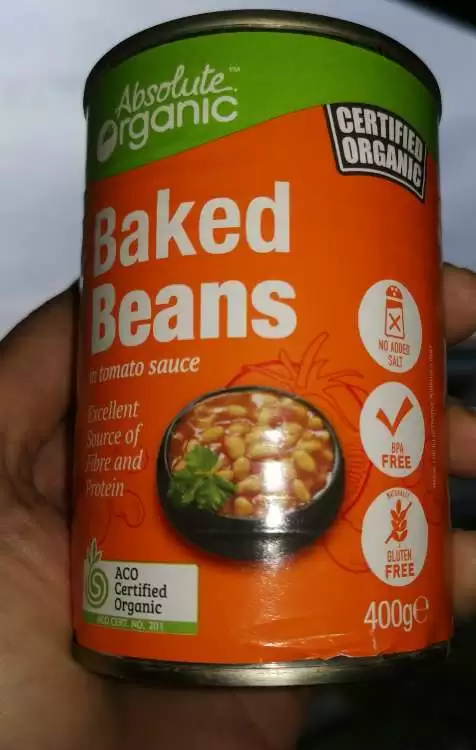-
Posts
28,430 -
Joined
-
Last visited
-
Days Won
630
Content Type
Profiles
Forums
Events
Blogs
Latest Celiac Disease News & Research:
Everything posted by Scott Adams
-
-

Low libido without gluten
Scott Adams replied to Spherical Bird's topic in Related Issues & Disorders
This is a great chart! -
I just want mention that you could have celiac disease because you do have one positive blood test: Gliadin (Deaminated) Antibody IgA POSITIVE 18.3 (normal range <=14.9) combined with relatives who also have it. All of your symptoms seem consistent and a gluten-free diet may also help your liver issues balance out if it is related to that. Based...
-

Do You Have Similar Symptoms?
Scott Adams replied to Ucat's topic in Celiac Disease Pre-Diagnosis, Testing & Symptoms
Some experts believe that NCGS is a precursor, in some cases, to celiac disease...like a warning sign. I would like to see more research on this, but if true, the best approach would be total elimination so you never reach a point where you end up with full blown celiac disease. -
Interestingly one of my first symptoms that I can recall with a similar pain and bloating in my lower right side, very similar to what you've described. This symptom alone could be many things, however, but this combined with your other symptoms tells me that it would be worth getting screened for celiac disease if that is possible. It would mean eating ...
-

Further testing needed?
Scott Adams replied to Klugett's topic in Celiac Disease Pre-Diagnosis, Testing & Symptoms
You have one very positive test for celiac disease (this test is not for NCGS), so it is likely that you have celiac disease and need to go gluten-free. The normal protocol would be to follow up this positive test with an endoscopy to check for villi damage associated with celiac disease. -

Low libido without gluten
Scott Adams replied to Spherical Bird's topic in Related Issues & Disorders
@Wheatwacked This is an interesting chart, can you explain this "Celiac High Risk" column? Who does this test? -

New to fourms, please need advise
Scott Adams replied to ss82's topic in Celiac Disease Pre-Diagnosis, Testing & Symptoms
Welcome to the forum! Since you've been gluten-free for four months you can't undergo screening for celiac disease now, so there is no way to be sure whether or not you have it unless you are willing to eat gluten daily for 6-8 weeks before doing a celiac disease blood screening. Given that your symptoms get worse when you eat gluten it seems possible and... -
At the time our article ran Carol Kacinski was listed as the only officer and President of Simply Gluten Free Inc.. As of March 17, 2022 the officer of Simply Gluten Free Inc. has been changed to "Colin Kacinski," and Carol's name has been removed. Does this mean that Carol Kacinski has resigned as its President?
- 29 comments
-
- capitol
- carol kicinski
- (and 3 more)
-

Do You Have Similar Symptoms?
Scott Adams replied to Ucat's topic in Celiac Disease Pre-Diagnosis, Testing & Symptoms
I just want to emphasize what @trents brought up, that ~10x more people have non-celiac gluten sensitivity (NCGS) than do celiac disease, but there currently isn't a test for it. The treatment is the same, a gluten-free diet for life. So you could fall into this group if you don't have actual celiac disease. -
Celiac.com did verify that Open Original Shared Link via a Florida corporation search, so you are not correct about her not being the owner. Feel free to click the link to see the documents yourself.
- 29 comments
-
- capitol
- carol kicinski
- (and 3 more)
-
For allergies normally hives develop fairly soon after consumption of the offending item, but I'm not an allergy expert. It might make sense to eliminate one allergen at a time for a week, for example corn, and then add it back. If the hives go away during that week it seems like you might have your culprit, especially if they come back when you eat it again...
-
Celiac.com will continue covering this and other stories that are relevant to the celiac disease community, and will follow this article up with any future news on the disposition of this case.
- 29 comments
-
- capitol
- carol kicinski
- (and 3 more)
-
I also think that it is very important for you to keep a food diary, to see if there is something that might be triggering it. Look at the top 8 allergens and monitor those in your diet. I will assume that this isn't DH, and that they are hives due to allergies, not celiac disease.
-

Can I Not Have Frappucinos?
Scott Adams replied to Ginger38's topic in Gluten-Free Foods, Products, Shopping & Medications
We’ve done some articles on this topic that may be helpful: https://www.celiac.com/search/?&q=coffee&type=cms_records2&search_and_or=and&search_in=titles -

Really high tissue transglutaminase
Scott Adams replied to StephD's topic in Celiac Disease Pre-Diagnosis, Testing & Symptoms
We did publish our summary of the study I mentioned, which indicates that in children with 5x positive antibody levels there is no need for a biopsy: I realize that doctors may not be up to date on the very latest research, however, there is no reason that you can't be up on it. Of course it is your call whether or not you'd like a confirmation of celiac... -
Company Announcement Fairmont Foods, Inc. of Fairmont, MN is recalling corrugated boxes of Schwan’s Brand “Spinach and Artichoke Dip” with date code P82013 xxxx due to undeclared soy and wheat. People who have allergies or sensitivities to soy and wheat run the risk of a serious or life-threatening allergic reaction if the recalled product is consumed. ...
-

Gluten Free Cannabis Edibles
Scott Adams replied to OnTheBay's topic in Gluten-Free Foods, Products, Shopping & Medications
So you didn’t read the quote or the source material that I posted? -

So tired of being scared.Please help:((
Scott Adams replied to Sabaarya's topic in Coping with Celiac Disease
I’m drawing a blank here, sorry…are you sure that I recommended this? -
I just want to mention that there is a misconception about the Gluten-Free labeling laws, and foods are not fortified with gluten up to 20 ppm, so most foods that have “gluten-free” on their labels will usually have no detectable gluten in them, and are normally tested and monitored for gluten during production to avoid a possible product recall and lawsuit. So...
-

Gluten Free Cannabis Edibles
Scott Adams replied to OnTheBay's topic in Gluten-Free Foods, Products, Shopping & Medications
Even though these products are still in a grey zone and aren’t legal on a federal level, it looks like those who make them are still regulated by the FDA, but the FDA needs to clarify things more for sure: https://www.fda.gov/news-events/public-health-focus/fda-regulation-cannabis-and-cannabis-derived-products-including-cannabidiol-cbd#food “Fo...




